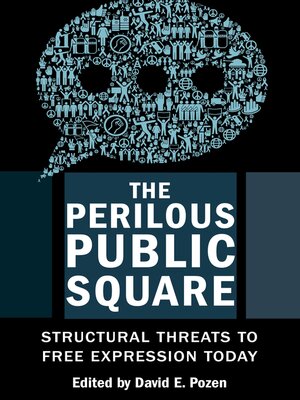
Sign up to save your library
With an OverDrive account, you can save your favorite libraries for at-a-glance information about availability. Find out more about OverDrive accounts.
Find this title in Libby, the library reading app by OverDrive.



Search for a digital library with this title
Title found at these libraries:
| Library Name | Distance |
|---|---|
| Loading... |
Americans of all political persuasions fear that "free speech" is under attack. This may seem strange at a time when legal protections for free expression remain strong and overt government censorship minimal. Yet a range of political, economic, social, and technological developments have raised profound challenges for how we manage speech. New threats to political discourse are mounting—from the rise of authoritarian populism and national security secrecy to the decline of print journalism and public trust in experts to the "fake news," trolling, and increasingly subtle modes of surveillance made possible by digital technologies.
The Perilous Public Square brings together leading thinkers to identify and investigate today's multifaceted threats to free expression. They go beyond the campus and the courthouse to pinpoint key structural changes in the means of mass communication and forms of global capitalism. Beginning with Tim Wu's inquiry into whether the First Amendment is obsolete, Matthew Connelly, Jack Goldsmith, Kate Klonick, Frederick Schauer, Olivier Sylvain, and Heather Whitney explore ways to address these dangers and preserve the essential features of a healthy democracy. Their conversations with other leading thinkers, including Danielle Keats Citron, Jelani Cobb, Frank Pasquale, Geoffrey R. Stone, Rebecca Tushnet, and Kirsten Weld, cross the disciplinary boundaries of First Amendment law, internet law, media policy, journalism, legal history, and legal theory, offering fresh perspectives on fortifying the speech system and reinvigorating the public square.







